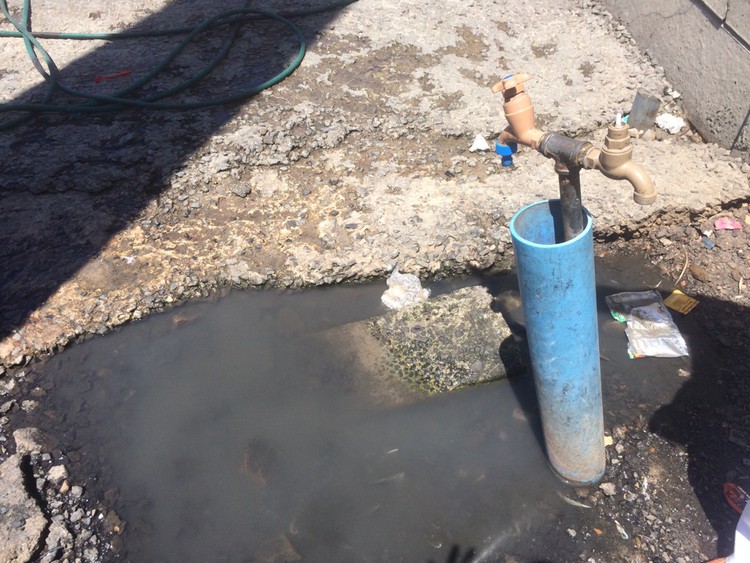
Water leaks from a standpipe in Dunoon. Photo: Laura Bratton
6 November 2017
For residents of Cape Town’s informal settlements, tighter water restrictions won’t make any difference.
If the City of Cape Town has to move to Phase 2 – Disaster Restrictions – of its drought response plan, some households in formal settlements will no longer have running water and will have to fetch drinking water from “points of distribution”.
But nothing will change for households in informal settlements, which get their water from standpipes anyway.
Cape Town is currently in Phase 1, or “Preservation Restrictions” of its disaster plan, which involves “water rationing through limiting supply and advanced pressure management”. Phase 2 is the “Disaster Restrictions Phase”, and Phase 3 the “Full-scale disaster implementation”.
The Mayoral Committee Member for Informal Settlements, Water and Waste Services, and Energy, Xanthea Limberg, said that if the City moved to Phase 2, informal settlements would be prioritised.
During this phase, water collection sites or Points of Distribution (PODs) will be established around the city, and some households in formal settlements will not have access to piped drinking water. Informal settlements will continue to receive water from standpipes.
Limberg said: “The City recognises the vulnerability of informal settlements and will prioritise these communities, where possible given infrastructure viability. This means that they will continue to receive water through normal channels, which is through standpipe taps near their homes. As the informal settlements already have access to tap stands, these residents would not need to walk or drive to water points of distribution. This means the water reticulation network will continue to supply informal settlements but, in the general case, residents in formal residential areas will need to collect water from PODs.”
Residents of informal settlements say the drought has made no difference to the problems they already have with access to water.
Thabo Lusithi, who lives in Khayelitsha and is a member of the Western Cape Water Caucus, says informal settlements in Khayelitsha continue to have the same issues as before the drought. Many households share the same standpipe; there are problems with water pressure; and periods when the pipe stops functioning altogether.
A resident of an informal settlement in Dunoon, who asked not to be named, said nothing had changed with her water supply since the drought began. She said the water standpipe she shared with 20 other households leaked, and there was no drain. Water pressure varied and sometimes the pipe did not operate for a whole day, she said.
According to the 2011 Census, 12% of the 1,068,572 households in the City of Cape Town received tap water from a communal stand.